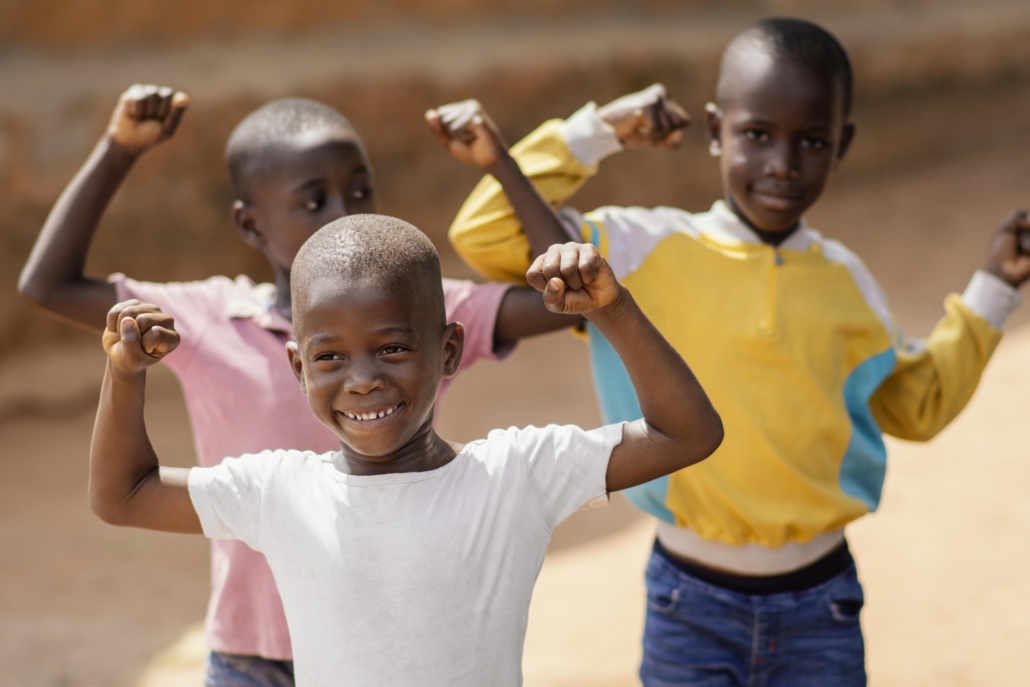Top Poverty-Fighting Causes Receive $300 Million in Funding

In 2023, Open Philanthropy pledged $300 million of funding over the next three years to GiveWell, an organization searching for and highlighting the most cost-effective, top poverty-fighting causes through comprehensive research. Open Philanthropy aims to achieve the best possible, conducting thorough research on the organizations they fund to achieve this. Open Philanthropy’s funding of $300 million to GiveWell will have a huge impact on those who need it most, preventing tens of thousands of deaths and demonstrating Open Philanthropy’s faith in GiveWell as they “set the gold standard in our eyes.”
Open Philanthropy began as an initiative within GiveWell, headed by Cari Tuna and Dustin Moskovitz, later growing into its own independent organization in June 2017. GiveWell and Open Philanthropy still work closely together as they share the mutual goal of finding the top poverty-fighting causes and cost-effective organizations that do the most good. Since the founding of Open Philanthropy, it has awarded GiveWell more than $1 billion in funding. While GiveWell publishes data and research to recommend the most impactful organizations to the public, Open Philanthropy primarily chooses where to give Tuna and Moskovitz’s money, funding a broader range of issues with a focus on how important a cause is, if it is underfunded and if there is a clear way in which funding could accelerate progress. So far in 2023, Open Philanthropy has donated $140,312,603 to organizations recommended by Give Well.
Sightsavers
Since 2017, Open Philanthropy has been funding deworming programs led by Sightsavers at the recommendation of GiveWell.
In March of this year, they continued their support for Sightsavers, giving a total grant of $11.2 million to fund the next three years of their work. The majority of the funding, $8.3 million, will support already established deworming programs in Nigeria, Cameroon and Chad, with the other $2.9 million used to develop the program in Chad to cover 10 more regions.
Sightsavers treat children for the parasitic infection schistosomiasis, which kills 200,000 people in Sub-Saharan Africa every year, and intestinal worms. Deworming is recognized as one of the most cost-effective programs in areas where these parasitic infections are high. Without treatment these diseases can affect cognitive and physical development, impacting the child’s health and disrupting their education as they struggle to concentrate or miss school. This can perpetuate the poverty cycle as it is almost impossible to escape poverty without an education.
Malaria Consortium
Extending its funding for the seventh year in a row, Open Philanthropy awarded the Malaria Consortium $61.4 million to aid its seasonal malaria chemoprevention programs in Nigeria, Chad, Burkina Faso and Togo until 2025. Open Philanthropy is passionate about tackling malaria, as every year it causes 600,000 deaths, 70% of which are children under 5 years old in Sub-Saharan Africa. Its grant to the Malaria Consortium funds the administration of antimalarial drugs to children monthly during the four peak months of the malaria season.
GiveWell recommended Malaria Consortium to Open Philanthropy as seasonal chemoprevention has proven to effectively and significantly reduce the widespread presence and severity of malaria. A longitudinal study conducted in Togo showed SMC reduced the prevalence of malaria by 75% in 2020, while the fourth round of SMC proved to be 96.2% more effective than the first round. As malaria is the leading cause of death in children under five, it is unsurprising that the Malaria Consortium’s effective work is one of GiveWell’s top poverty-fighting causes.
Helen Keller International – Vitamin A Supplementation
Open Philanthropy’s grant to Helen Keller International in January 2023 was 17 times larger than the previous year, awarding them more than $67 million to assist with vitamin A supplementation (VAS) in Burkina Faso, Côte d’Ivoire, Guinea, Cameroon, the Democratic Republic of the Congo (DRC), Niger, Nigeria and Mali. Vitamin A deficiency occurs in poverty-stricken areas as their diets lack variation or nutrients and can have detrimental impacts on their health by weakening their immune system, causing anemia, stunting, blindness and complications during pregnancy or birth. Helen Keller International aids in VAS programs for children by providing technical assistance, advocacy and funding for governments to implement the programs. The grant supports Helen Keller’s operations in 8 countries for an extra 18 months, ending in June 2026, and helps them expand to more regions, such as in DRC, where Helen Keller plans to reach 7 new provinces by 2025.
Open Philanthropy’s generous funding of $100 million a year to the top poverty-fighting causes recommended by GiveWell, will save tens of thousands of lives every year. Hopefully, this harmonious partnership will continue to play a massive and vital role in the fight against poverty.
– Alice Isola
Photo: Freepik
